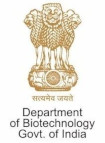2nd Bangalore Meeting on Asian Bees - Tentative Schedule
2nd Bangalore Meeting on Asian Bees
Friday 01/03/2019
Location: Department of Entomology, UAS-GKVK
9:15 Welcome (V.V. Belavadi, Hema Somanathan, Axel Brockmann, John Ascher)
Session 1: Bees, Diversity, Taxonomy (chair John S. Ascher)
9:30 – 10:00
Natapot Warrit (Chulalongkorn University, Bangkok) (25+5 talk)
Cryptic Species, Sexual Dimorphism, and Taxonomy of Neon Cuckoo Bees genus Thyreus in Thailand
10:00 – 10:30
Michael Orr (Institute of Zoology, Chinese Academy of Sciences, Beijing) (25+5 talk)
Extreme nesting behaviors in bees
10:30 – 11:00
John S. Ascher and Hai Xiang Liew (National University of Singapore, Singapore) (25+5 talk)
Bee species-richness and endemism in India from a global perspective
11:00 – 11:30 Coffee/Tea Break
Session 2: Pollination and Ecology (chair Hema Somanathan)
11:30 – 12:00
Parthiba Basu (Centre for Pollination Studies University of Calcutta) (25+5 talk)
Bees in Eastern Indian agricultural landscapes.
12:00 – 12:30
Suresh Raina (Centre of Sericulture & Biological Pest Management Research (CSBR, RTM Nagpur University) (25+5 talk)
Diversity of Honeybee species in Agriculture & Forest Ecosystem supporting pollination services in India
12:30 – 13:00
Omkar Babu (Acharya Nagarjuna University, Guntur) (25+5 talk)
Genetic diversity and population genetic structure of Indian honey bee
species in selected ecoregions of India.
13:00 – 14.30 Lunch
14:45 – 15:30
Short presentation by students
1. Kavya (Hema Lab): Plant-pollinator networks in an arid landscape
2. Pradeep S.D. (Belavadi lab): Bee pollen as indicator of floral diversity: studies using solitary and social bees
4. Jewel Johnson (Hema Lab): Amino acid preferences in honey bees
5. Manoj, K. (Sinu Lab): Plant characteristics predict leafcutter bees’ preference of leaf foraging plants: an Indian scenario
6. Sangeetha Varma (Sinu Lab): Nectar robbing in bellflower (Sesamum radiatum) benefited pollinators but unaffected maternal function of plant reproduction
7. Kavya Mohan (Hema Lab): Plant-pollinator mutualisms in a tropical arid forest
8. Nontawat Chatthanabun (Natapot lab): Report on Megachile bicolor (Fabricius, 1781) nest from Thailand
9. Pakorn Nalinrachataka (Natapot lab): Behind the scene of Bees and Spider Research Unit (Thailand) specimens collection
15:30 – 16:00 Coffee/Tea Break
16:00 – 18:00 Round Table Discussion
Pollination and conservation of bees in India: what are the problems and what has to be done? (tentative title)
19:00 Dinner (Speakers only, “Urban Flavours “Attide Boutique Hotel)
Saturday 02/03/2019
Location: NCBS (Haapus Lecture Hall)
Session 3: Honey bees – Ecology (chair Axel Brockmann)
09:30 – 10:00
P.A. Sinu (Central University of Kerala, Calicut) (10 + 5 talk)
Foraging sources of leafcutter bees in three contrasting geographic regions in the world: Plant clade predicts leaf choice
10:00 – 10:15
Mahua Ghara (Postdoc in Renee Borges lab / pollination) (10 + 5 talk)
The role of bees in pollination of Indian medicinal plants
10:15 – 10:30
Shashidar Viraktamath (Department of Entomology, UAS, Bangalore) (10 + 5 talk)
A technique to collect males of stingless bees (Apidae: Meliponini)
10:30 – 10:45
Kedar Devkota (Thribuvan University, Kirtipur Nepal) (10 + 5 talk)
Effect of climate factors on the migratory behavior of the Giant Honey Bee (Apis dorsata) in Chitwan District, Nepal
10:45 – 11:00
Basavarajappa S. (Apidology Laboratory, University of Mysore) (10 + 5 talk)
Threats to wild honeybee population and conservation of wild honeybees in their preferred habitats in Southern Karnataka, India
11:00 – 11:30am Coffee/Tea Break
Session 3: Honey bees - Behaviour and Physiology (chair Hema Somanathan)
11:30 – 12:00
Joby Joseph (Center for Neural and Cognitive Sciences, University of Hyderabad) (25 + 5 talk)
Apis dorsata olfactory system is ‘very smilar’ to that of Apis mellifera
12:00 – 12:15
Axel Brockmann (NCBS) (10 + 5 talk)
Expression of olfactory receptor genes in drone antennae and the evolution of sex-pheromone communication in honey bees.
12:15 – 12:30
Rocio Fatas (Sristhi Institute of Art, Design and Technology, Bangalore) (10 + 5 talk)
Citizen Science project: Smartphone app to monitor A. dorsata colonies
12:30 – 13:00
Short presentation by students
1. Prabhudev MV (Axel Lab): Diversity of A. dorsata and A. laboriosa along the Himalayas
2. Allison Young (Axel Lab): Night dances in A. dorsata
3. Sajesh Vijayan (Hema Lab): Landscape features affecting nest site choice in Apis dorsata.
4. Awanti Shastri (Hema Lab): Behavioural ontogeny of Apis cerana
5. Asmi Jezeera (Hema Lab): Spatial resolution in Tetragonula iridipennis
6. Thomas Jose (Sinu Lab): Are ants really not attracted to flowers?
7. Anjana P. Unni (Sinu Lab): Arms race between ants and bees for floral nectar
13:00 – 14.30 Lunch
15:00 – 18:00 Round Table Discussion (Location: Nucleus Meeting Room)
Prospects for a joined initiative of bee researchers in India (Asia)
(tentative title; tea and coffee will be served in the meeting room)
19:30 – Dinner at NCBS (Speakers and Students; 30-40 people NCBS Canteen, Organised by Axel’s lab)

